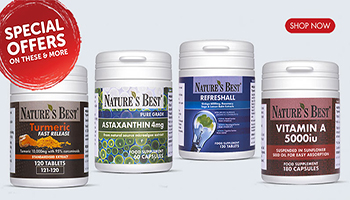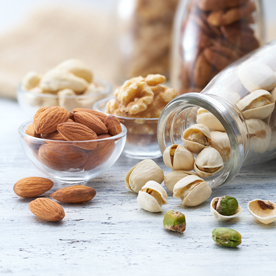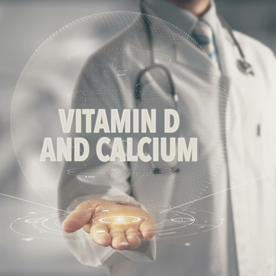
If you have PCOS, dealing with breakouts can become a daily occurrence. As with many other symptoms, this is down to the hormone imbalance that characterizes the condition. Although acne and PCOS can be challenging and emotionally distressing to live with, rest assured, you can manage them with the correct application.
There’s no one-size-fits-all way to control PCOS-related acne. Everyone’s skin is different; one treatment plan will, inevitably, vary to the next. However, there’s a strong case to suggest a multidisciplinary approach – combining lifestyles changes, dietary improvements, supplementation, and even medication – can help. With the necessary interventions – along with perseverance and understanding – eventually your acne will improve, just like any other symptom.
What’s the link between PCOS and acne?

Hormonal imbalance is at the centre of PCOS. Simply put, the condition leads to an increase in levels of ‘male hormones’, like testosterone. These hormones cause the sebaceous gland – the small gland in the skin that secretes lubricating oily matter – to produce more oil than necessary, which clogs pores and creates the perfect environment for breakoutsi.
PCOS-related acne treatment options
While PCOS-related acne can hamper confidence, mood and overall sense of wellbeing, fortunately, there are many ways to manage it. Accordingly, you’ll need to implement an integrative and holistic approach – addressing the condition from the inside out.
Dietary changes
Avoid dairy
Most empirical data agrees that acne is aggravated by the consumption of dairy. When we digest the proteins in milk, whey and casein, they produce a hormone similar to insulin – IGF-1. This hormone is notorious for triggering breakouts. What’s more, the hormones present in milk can interact with our own hormones, puzzling the body’s endocrine system and, as a result, causing acne.
A review published in the Journal of the Academy of Nutrition and Dietetics remarked on a compelling link between dairy consumption and acne. In their analysis of 27 trials, researchers found high dairy intake contributed to aggressive acne flare-upsii. The findings purported dairy increases insulin and androgen levels, which causes the body to produce more sebum and, therefore, more spots.
Acne isn’t always related to dairy consumption. But it’s worth experimenting to assess if it’s worsening your skin. To determine its impact, try limiting your intake of dairy for a month or so. It can be helpful to keep a food and acne diary during this window, too.
Go low GI
Although chocolate and greasy fries have always had a bad rap when it comes to acne, it’s now widely touted that food with a high glycaemic index (the rate at which your body breaks down a carbohydrate for energy use) spike blood sugar levels and lead to inflammation in the body, which can cause acne breakouts amongst other things.
In a controlled study published in the American Journal of Clinical Nutrition, a low GI diet demonstrated great promise in reducing acneiii. The participants were separated into two groups and given different meal plans for 12 weeks. One group ate a diet comprising of 25% protein and 45% low GI carbohydrates, while the second ate a diet without any strict control of their glycaemic index. Amongst the group who consumed a meticulously controlled low GI diet, their acne had impressively decreased by almost twice the rate of the high GI group.
With this in mind, try to pack your diet with low GI options, like quinoa, chickpeas, lentils, brown rice, rolled oats and sprouted grain bread. Beyond this, limit your consumption of high GI culprits, such as highly-refined, processed foods: white bread, white rice, pastries, and biscuits.
Feed your gut
If you experience acne breakouts, you may not have considered the role of your digestive system. But a new area of medical research has started investigating the ‘gut-skin axis’ in the hope of determining how digestion can impact the skiniv.
A growing body of evidence proposes a leaky gut could be at the root of acne breakouts, with data pointing to increased gut permeability in people with acnev. The gut is layered with proteins that are tightly woven together at certain points. For some people, the link between the proteins can become weak and loose, leaving the gut vulnerable to the infiltration of foreign substances, like acne-causing toxins.
According to a study published in the Dermatology Online Journal, researchers positioned probiotic foods as a promising treatment for persistent pimples, as they support gut healthvi. Fermented foods are abundant in beneficial bacteria that support your gut health; kefir, sauerkraut, miso, kombucha and kimchi all boasting acne-fighting properties. Alongside this, try to eat plenty of fibre-rich foods. Fruit, vegetables, legumes, beans, and whole grains feed and sustain your gut bacteria.
Lifestyle changes
Relax
The unrelenting pace of modern life means stress is just another pressure we learn to deal with. But this emotional epidemic is impacting all areas of our health, especially our skin. The largest organ in our body, stress can affect and inflame the skin in countless ways: in the form of psoriasis, eczema, seborrheic dermatitis, and even acne. Undoubtedly, there’s a deep and powerful connection between the mind and skin.
A trial published by the Archives of Dermatological Research found that stress and other aspects of modern life could lead to acne in women. The findings highlighted stressors – socioeconomic pressures, light stimuli and even urban noises – can have far-reaching effects on the immune system, hormonal secretion and digestive health, which may cause acne breakoutsvii. Consider this: when your body is acutely stressed, it perceives it’s under attack and creates inflammatory cells in response. Because the inflammatory markers have swelled in number, it can activate acne flare-ups.
Managing stress requires a multifaceted approach. Beyond ensuring you get non-negotiable seven to nine hours of sleep each night and exercising three to four times a week, you may also want to try meditation, deep breathing exercises or journaling. Be mindful there’s no single method to mitigate stress; it’s important to find what works for you.
Prioritise sleep
Getting enough sleep every night isn’t just essential for cognitive function, appetite, and mood, but it’s also critical for your skin health. Sadly, however, a solid stretch of sleep is agonizingly hard to come by these days.
The effects of sleep deprivation are manifold, many of which can lead to acne breakoutsviii. Without adequate rest, your immune system is compromised, rendering you more prone to acne-activating bacteria. And that’s not all. Sleeplessness also increases levels of inflammation in the body, making aggressive breakouts more likely. Beyond this, poor sleep can spike stress hormones, like cortisol, which can cause the skin to produce more sebum, and, therefore, more acne.
Getting a non-negotiable seven to nine hours of sleep each night is essential to keep your skin healthy and happy. To improve your sleep hygiene, try implementing the following measures:
-
Avoid using technology in the 90-minutes before bed
-
Remove all screen from your bedroom
-
Avoid using your phone as an alarm clock
-
Using ‘night-mode’ on all of your electronic devices
-
Consider sleeping with the bedroom window open (the optimal sleeping temperature is around 16-18 degrees)
-
Fit blackout blinds in your bedroom
-
Live by the ‘no caffeine after noon’ rule
-
Embrace morning light with regular outdoor breaks
-
Socialise and exercise earlier in the day
-
Avoid intense activity 3 hours before sleeping
-
Try to eat dinner before 7 pm
Take a look at our tips for fighting fatigue with PCOS for a more detailed guide.
Essential oils for PCOS-related acne
Besides awakening the senses, essential oils are another powerful management tool for PCOS. Aside from improving mood and overall wellbeing, aromatherapy can provide some topical relief for PCOS-related acne. A word of caution: avoid using essential oils undiluted on the skin. Always mix them with a carrier oil, like Grapeseed Blending Oil, or moisturiser before applying to your face.
Tea Tree Oil
Famed for its antimicrobial and anti-inflammatory properties, evidence routinely positions tea tree oil as a helpful natural aid to combat acneix. You only have to look at the sheer amount of skincare products that include this essential oil in their formulas.
Before applying diluted tea tree oil to your face, do a small patch test on the inside of your elbow. If you notice any burning, redness or swelling this signals skin sensitivity. Always wash your face with a gentle cleanser before applying the oil. Gently dab on your blemishes, allow to dry, then follow with a moisturiser. Repeat this process morning and night.
Lavender Oil
Lavender oil is the perfect partner to your acne-fighting skin regime. Lavender soothes skin and can reduce the appearance of acne, scarring, and dark spots.
Add a few drops to your favourite carrier oil before applying to your cleansed face. Then, follow with your moisturiser.
Supplementation
Omega 3
A plentiful intake of omega 3 is at the heart of any healthy lifestyle – and it’s particularly important if you’re dealing with acne breakouts. A growing body of research claims omega-3 fatty acids act as gatekeepers in the body, allowing antioxidants and micronutrients to enter while keeping acne-activating toxins outix. For best results, we suggest adding a Maximum Strength Pure Fish Oil 1300mg to your skin-healthy diet.
Zinc
Zinc is essential for your acne-fighting arsenal, contributing to the normal function of both the immune system and skin. Worryingly, one in three adults in the UK receive less than the recommended daily intake of zinc. Many nutritionists now prefer the ‘citrate’ form of zinc since it’s more bioavailable (the body can readily absorb it). Just 15mg of zinc per day can support skin health.
Selenium
Lauded for its ability to fight illness and contribute to the normal function of the immune system, selenium is lesser known for its role in skin health. An antioxidant powerhouse, selenium neutralises free radicals in the body – unstable chemicals, which, in excess, can damage cells, like those in your skin. Some selenium products deliver a meagre 100µg. For optimal skin health, choose a quality selenium supplement supplying 200µg per day.
Vitamin E
Impressively, vitamin E is the most potent antioxidant in the body. It contributes to the protection of the body’s cells from oxidative damage, which, in turn, supports the skin. Generally speaking, a daily dose of 400iu is advised to plug any gaps encountered through diet alone.
Vitamin C
Vitamin C contributes to the normal function of the immune system, collagen formation, and protection of cells from oxidative stress. Like its antioxidant counterparts, it’s uniquely equipped to aid skin health and combat breakouts. Aim for 500mg each day to support a healthy, radiant complexion.
Vitamin D
Vitamin D is widely touted for its immune-nourishing properties. But did you know it may also improve skin health? Vitamin D is believed to have antimicrobial properties, which may help to clear skin. The Department of Health recommends a daily intake of 10µg.
Quickfire dos and dont’s
Do
-
Stay hydrated throughout the day; drink at least 8-10 glasses of water
-
Wash your makeup brushes and applicators after every use
-
Apply tea tree oil to breakouts at night
-
Cleanse your skin twice daily with a gel-based formula (double cleansing in the evening can help acne)
-
Exfoliate and use a face mask once-twice a week
-
Look for products with salicylic acid, benzoyl peroxide, or glycolic acid
-
Use a sunscreen with a high SPF every day (even on cloudy days and in winter)
-
Moisturise day and night
-
Wash your face after exercising
Dont’s
-
Pick blemishes – this will only contribute to acne scarring
-
Over cleanse and scrub with harsh chemicals
-
Go to bed without taking your makeup off
-
Sleep in dirty sheets or use unclean towels
-
Touch your face with unclean hands
-
Wear make-up when exercising
An integrative, holistic approach is the best way to tackle breakouts. That’s not to say the journey is an easy one. We understand PCOS-related acne can have a significant impact on your sense of wellbeing and confidence, so always seek the necessary support should you require it. Why not check out our other articles on supporting mental health with PCOS to get you started?
Enjoyed reading this article? Please feel free to browse the rest of our hub and discover more ways to manage your PCOS.
References:
-
Elsaie, M.L. (2016). Hormonal treatment of acne vulgaris: an update. Clinical, Cosmetic and Investigational Dermatology. 9, 241–248.
-
Burris, J., et al. (2013). Acne: The Role of Medical Nutrition Therapy. Journal of the Academy of Nutrition and Dietetics. 113 (3): 416-430.
-
Smith, R.N., et al. (2007). A low-glycaemic-load diet improves symptoms in acne vulgaris patients: a randomized controlled trial. The American Journal of Clinical Nutrition. 86 (1): 107-115.
-
O'Neill, C., et al. (2016). The gut-skin axis in health and disease: A paradigm with therapeutic implications. Bioessays. 38(11), 1167-1176.
-
Bowe, W., et al. (2011). Acne vulgaris, probiotics and the gut-brain-skin axis - back to the future?. Gut Pathogens. 3(1), 1.
-
Kumar, S., et al. (2014). Future perspective of probiotics in dermatology: an old wine in new bottle. Dermatol Online J. 16 (9): pii.
-
Albuquerque, R.G.R., et al. (2014). ) Could adult female acne be associated with modern life? Archives of Dermatological Research. 306 (8): 683–688.
-
Albuquerque, R.G.R., et al. (2014). ) Could adult female acne be associated with modern life? Archives of Dermatological Research. 306 (8): 683–688.
-
Cao, H., et al. (2015). Complementary therapies for acne vulgaris. The Cochrane database of systematic reviews. 1, CD009436.
-
Li, S.A., et al. (2014). Effect of Marine-Derived n-3 Polyunsaturated Fatty Acids on C-Reactive Protein, Interleukin 6 and Tumor Necrosis Factor α: A Meta-Analysis. Plos ONE. 9(2), e88103. Rubin, M.G., et al. (2018). Acne vulgaris, mental health and omega-3 fatty acids: a report of cases. Lipids in health and disease. 7, 36.
Related Posts?
Disclaimer: The information presented by Nature's Best is for informational purposes only. It is based on scientific studies (human, animal, or in vitro), clinical experience, or traditional usage as cited in each article. The results reported may not necessarily occur in all individuals. Self-treatment is not recommended for life-threatening conditions that require medical treatment under a doctor's care. For many of the conditions discussed, treatment with prescription or over the counter medication is also available. Consult your doctor, practitioner, and/or pharmacist for any health problem and before using any supplements or before making any changes in prescribed medications.

Olivia
Olivia Salter has always been an avid health nut. After graduating from the University of Bristol, she began working for a nutritional consultancy where she discovered her passion for all things wellness-related. There, she executed much of the company’s content marketing strategy and found her niche in health writing, publishing articles in Women’s Health, Mind Body Green, Thrive and Psychologies.
View More



